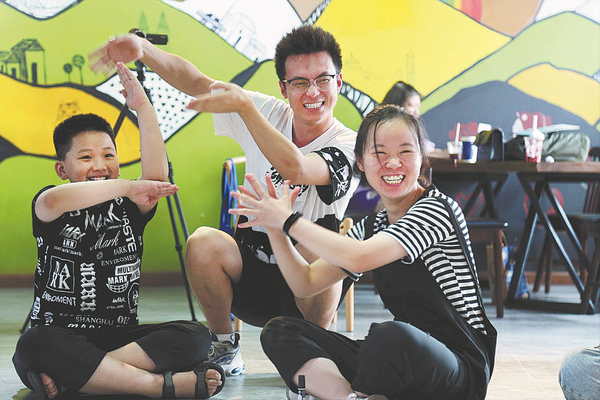

On the first day of the workshop, the team soon discovered that it was difficult, if not entirely impossible, to meet their everyday targets. Even with the help of sign-language interpreters, the children were either too reserved, or too unwilling, to take part in the activities. One of the girls spent the entire day practicing origami.
"At first we were at a loss when faced with their lack of response, and got nervous that we might have done or said something to hurt their feelings. But after a couple of days, we realized that we aimed too high. They are essentially teenagers, with their own interests and hobbies," Dodo says.
On the third day, the team revised their schedule and took the children on a day trip to a creative complex, with the task of finding a shop they like and observing the people and objects in it.
The group ended up having a pleasant day together, even the girl who preferred origami left a message in the postcard shop she chose, in which she wrote: "Today, I had a wonderful time."
That was the watershed, and after that day, the children began to open up to the tutors.
"I realized that my plans and goals were based mostly on my own expectations, and somewhat result-oriented, so I completely abandoned those things and decided that, for the rest of the workshop, I would simply be there for them, listen to their voices and stories, lead them to exercise their bodies and memories, and get some joyful and earnest communication," Chen Si'an says.
"What they needed the most was not theater education, not even better ways of self-expression, but actually to be seen as equals, to be given full respect and patience, as well as psychological support and encouragement."
Under the suggestion of Peng, they also designed a few activities that may seem initially unsettling for the students, for example taking off their hearing aids or shouting at the top of their lungs.